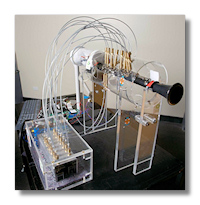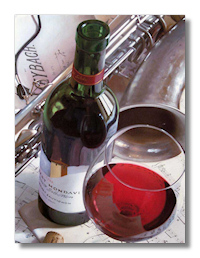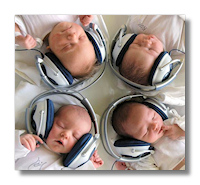Can't get it out of my head
A father's yearlong quest to grasp the infant musical mind
By Jeremy Eichler

I've never felt so paralyzed standing before my CD collection as the day I brought my newborn son home from the hospital and decided to play him his very first music. So much was at stake. Should it be modern or Baroque? Orchestral or opera? Would Mozart make him smarter? Would Schoenberg instill in him revolutionary tendencies? Would Wagner make him loathe his Jewish roots?
I settled on Bach's "Art of Fugue" in an arrangement for string quartet. Why not begin at the summit, and what's more, I imagined, all that searching counterpoint would be like honey for the infant brain. He responded with aplomb, conveying his wise, wordless mastery of the material by slipping into an eyes-closed, meditative state. OK, he fell asleep.
But my yearlong quest to understand the infant musical mind had begun. As it turns out, my timing was good, as the cognitive and neuroscience research on music has been exploding these days, driven by techno logical breakthroughs in brain imaging and a newly widespread openness toward music as a legitimate field of scientific study. It's hard to miss the reverberations. Keith Lockhart has been outfitted with sensors on the podium of Symphony Hall; Oliver Sacks's "Musicophilia" has brought strange tales of musical obsession to the bestseller list; the journal Nature has been running a nine-part essay series on the science of music; and a conference this weekend at Tufts University is convening more than 100 researchers from 13 countries to discuss the subject of "Music, Language, and the Mind." The art form that Claude Lévi-Strauss once dubbed "the supreme mystery of the science of man" is, one note at a time, becoming less mysterious.
Read more about this at The Boston Globe website:
http://www.boston.com/ae/music/articles/2008/07/12/cant_get_it_out_of_my_head/




















